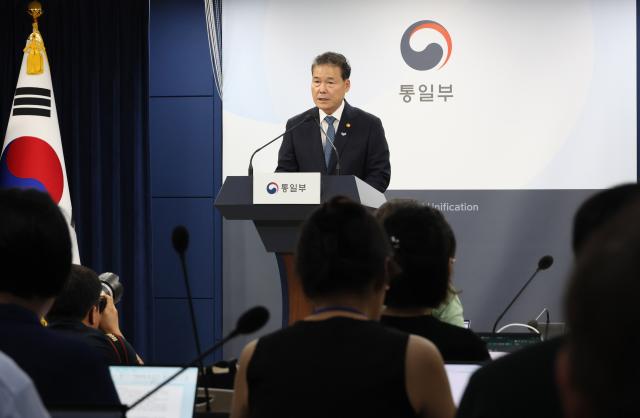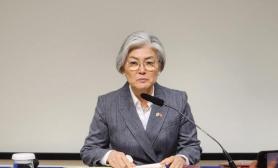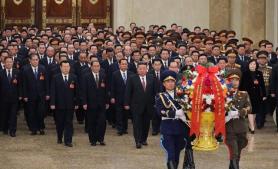
SEOUL, August 16 (AJU PRESS) - The Unification Ministry here Friday clarified President Yoon Suk Yeol's vision for reunification between the two Koreas, following his address during a ceremony marking Liberation Day the previous day.
Yoon outlined his reunification strategy centered on three key principles: "freedom values," "changes in the North Korean populace," and "international solidarity."
"Koreans must firmly establish the values and capabilities necessary to pursue freedom-based reunification," Yoon said. "We must also encourage changes that make North Koreans earnestly desire such reunification, and we must work in solidarity with the international community."
These remarks have sparked mixed reactions. The ruling People Power Party (PPP) supported the president's approach, while the main opposition Democratic Party (DP) and various civic groups criticized it, arguing that a one-sided strategy could further strain inter-Korean relations.
Tensions between the two Koreas have been rising since Yoon took office in 2022. His administration’s first defense white paper in 2023 redefined North Korea as South Korea's main enemy after a six-year hiatus, and official dialogues between Seoul and Pyongyang have been stalled for nearly two years.
Amid the concerns and confusion following Yoon's announcement, the ministry sought to clarify Yoon's vision for reunification.
Unification Minister Kim Yung-ho explained that his new vision is part of efforts to find practical, realistic approaches to reunification, acknowledging that the first stage of the South's reunification policy, established in 1994, has not been effectively implemented over the past 30 years.
"It clearly establishes the goal of achieving a unified Korea based on the principles of freedom, peace, and prosperity, as enshrined in the country's Constitution," Kim said.
The vision includes strategies to expand information channels for North Koreans, helping them gain insights from the outside world. Kim said, "We will gather various types of information and data, such as reports on the realities of North Korea's economy and society, to help objectively understand the situation in North Korea, and we will seek ways to disseminate them."
Ironically, North Korea has been fiercely combating the spread of K-pop and South Korean soaps, to prevent its people from comparing their lives with those of their southern neighbors. In 2022, two middle school students were sentenced to 12 years of labor for watching South Korean dramas.
North Korea has also reacted violently to South Korean propaganda balloons carrying dollar bills, USB drives, and simple medicines sent by human rights activists. In retaliation, Pyongyang launched balloons filled with wastepaper and feces toward Seoul.
Despite these tensions, Kim dismissed the possibility of stopping activists from sending balloons or taking down the propaganda speakers along the demilitarized zone (DMZ), which broadcast capitalist content deep into North Korean territory. He expressed confidence that Pyongyang would seriously consider Seoul's offer of dialogue.
"There are some who worry that North Korea could resist. However, we hope that Pyongyang will seriously consider this. Stopping military provocations and engaging in peace talks would help improve the livelihood of North Koreans and promote peace on the Korean Peninsula," Kim insisted.
"The goal of reunification that we are pursuing now is one where every individual living in both South and North Korea can enjoy freedom, human rights, and prosperity," Kim reiterated, stressing that South Korea's unification vision should not be viewed solely through a critical lens.
Copyright ⓒ Aju Press All rights reserved.




